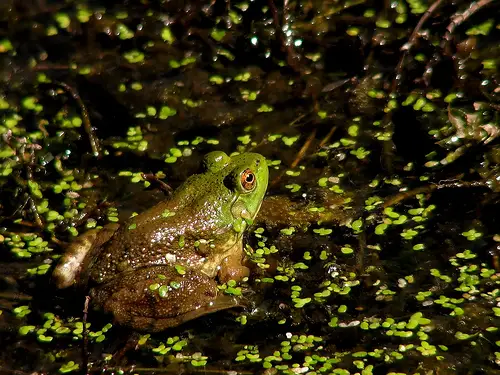Amphibians, which include frogs, toads, salamanders and newts have very delicate skin that has no obvious form of protection. To try to make themselves as safe as possible, amphibians have glands in their skin that secrete a slimy mucous. This keeps the skin moist when the animal is out of water and it acts as a sort of waterproof coating when the animal is in the water.
In frogs, the mucous acts as its main form of defence from predators because it makes the frog too slippery for predators to catch. Some amphibians secrete poisons and toxins into the secretions that coat their skin. In some species, these glands are spread evenly over the body surface but in others they just occur at key points.
Toads have toxic skin glands just above their eyes called parotid glands and these are capable of squirting out poison to get a predator before it gets too close, rather than waiting until the predator takes a bite to get a dose of repelling toxin.
In frogs, the mucous acts as its main form of defence from predators because it makes the frog too slippery for predators to catch. Some amphibians secrete poisons and toxins into the secretions that coat their skin. In some species, these glands are spread evenly over the body surface but in others they just occur at key points.
Toads have toxic skin glands just above their eyes called parotid glands and these are capable of squirting out poison to get a predator before it gets too close, rather than waiting until the predator takes a bite to get a dose of repelling toxin.

